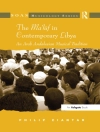– An approach based based upon self-learning and recognition of rhythmic and melodic patterns
– Original tunes not abstract sight-reading exercises.
– 163 carefully graduated pieces in a range of musical styles.
– Five sections related to the technical development of the clarinettist.
– Tunes progress to eventually include all key signatures up to four sharps and flats; whole tone, chromatic, modal and atonal elements are also incorporated.
– Each section concludes with duets and accompanied pieces for practice of ensemble sight-reading.
– Tunes range from grade 3 to grade 6.
Table of Content
Preface – To the pupil – Section 1: Notes to high C; off-beat quavers – Section 2: Notes to high D; semiquavers – Section 3: Dotted rhythms; 5/8 and 7/8 time signatures – Section 4: Swing; acciaccatura – Section 5: Chromatic patterns; time changes – Glossary
About the author
John Kember studied at Trinity College of Music, London and has enjoyed a varied career in both performing and academic spheres, ranging from teaching in schools and privately, to working as composer, arranger, pianist and conductor in Concert Halls, theatres and recording studios. Currently John is working on a number of new and exciting projects for both publication and performance. He has a busy private teaching practice in south east London and teaches for Kent Music School and the Kent Centre for Young Instrumentalists in Maidstone. John was an examiner for the Associated Board of the Royal Schools of Music from 1989 until 2005












